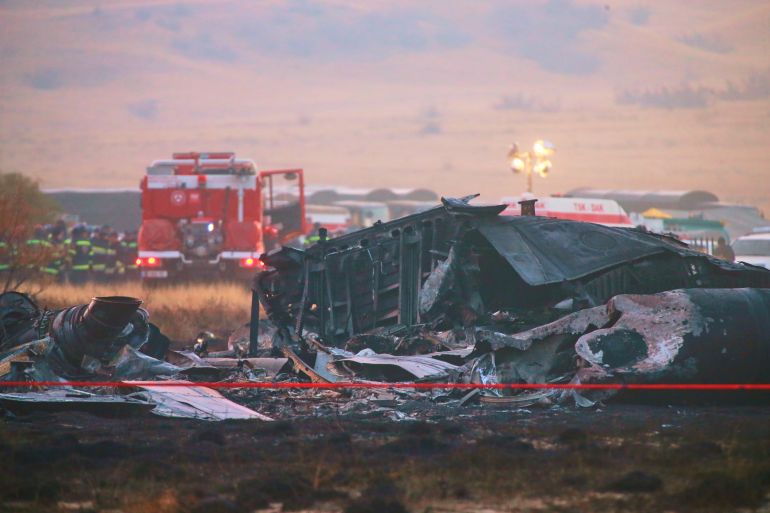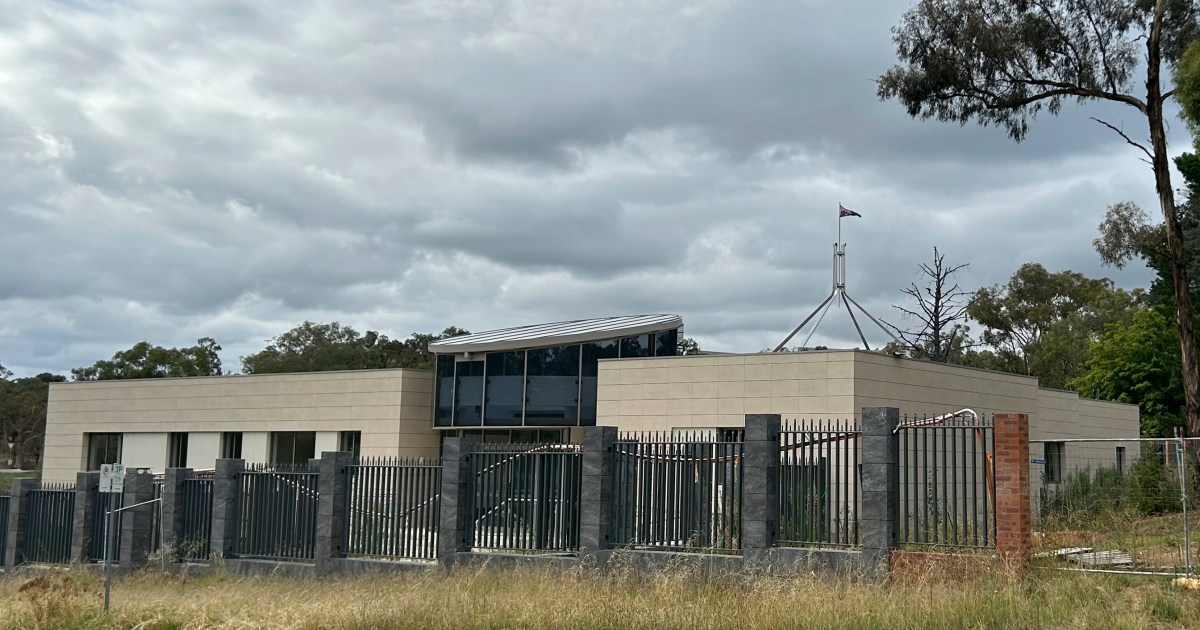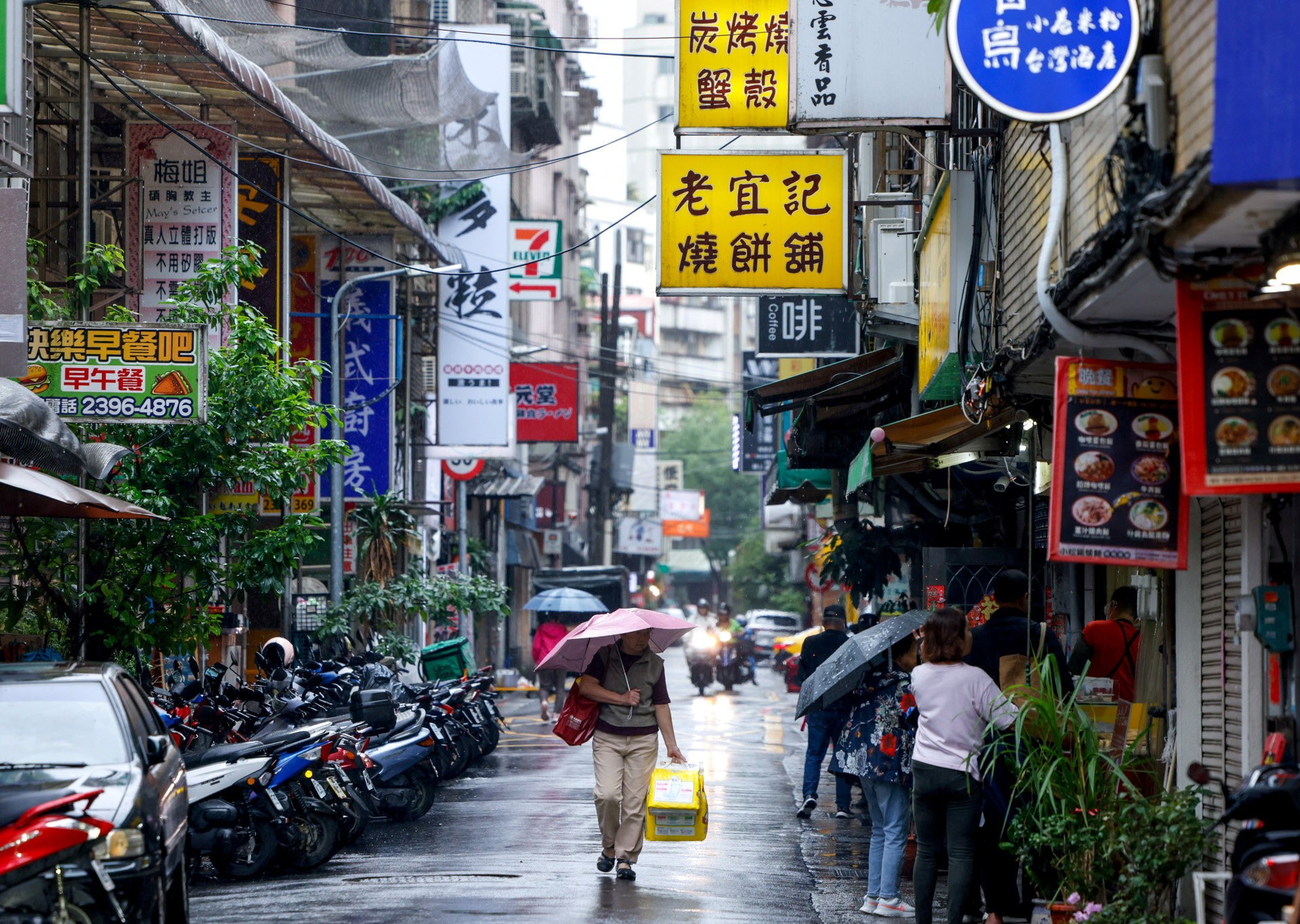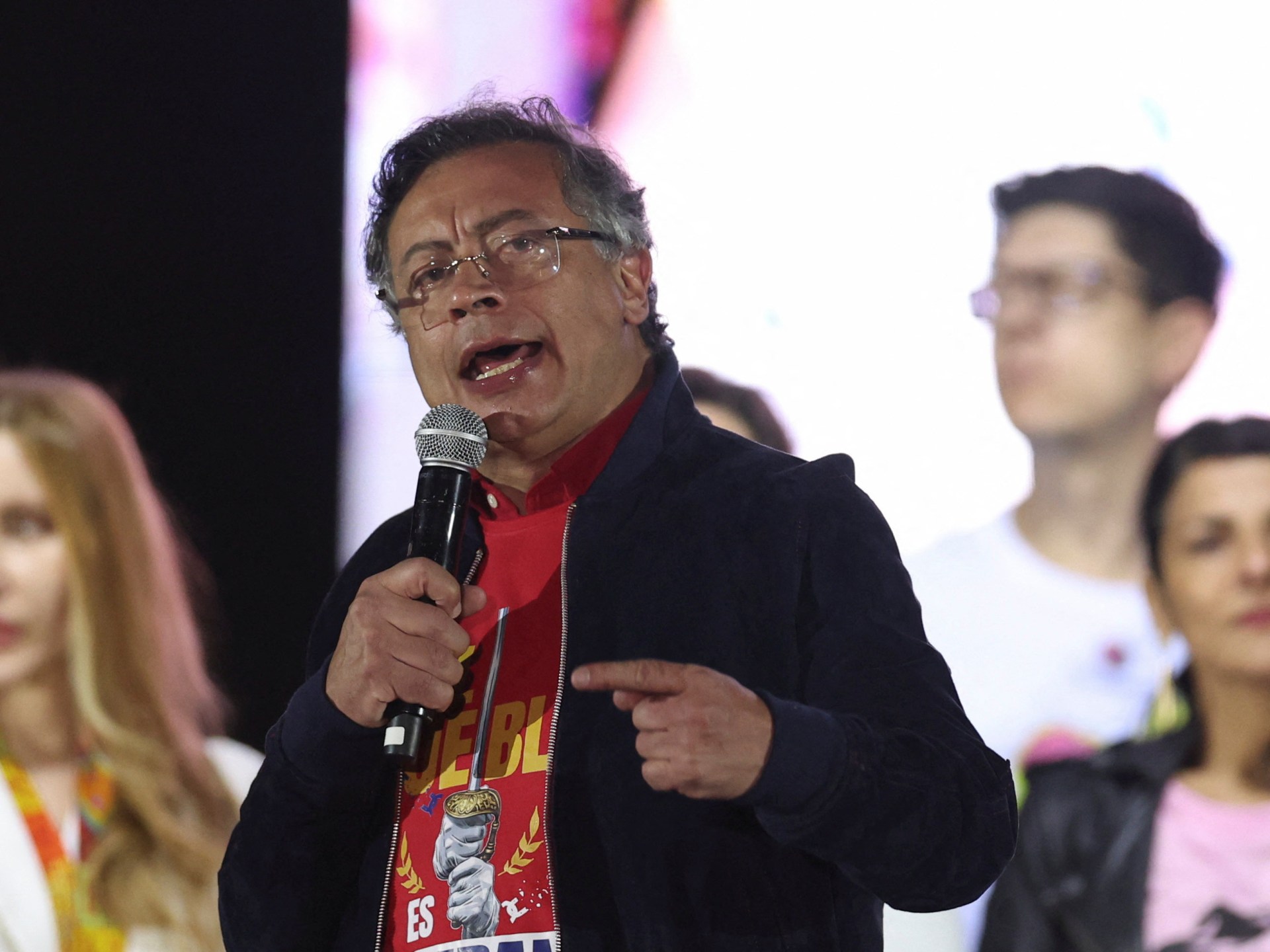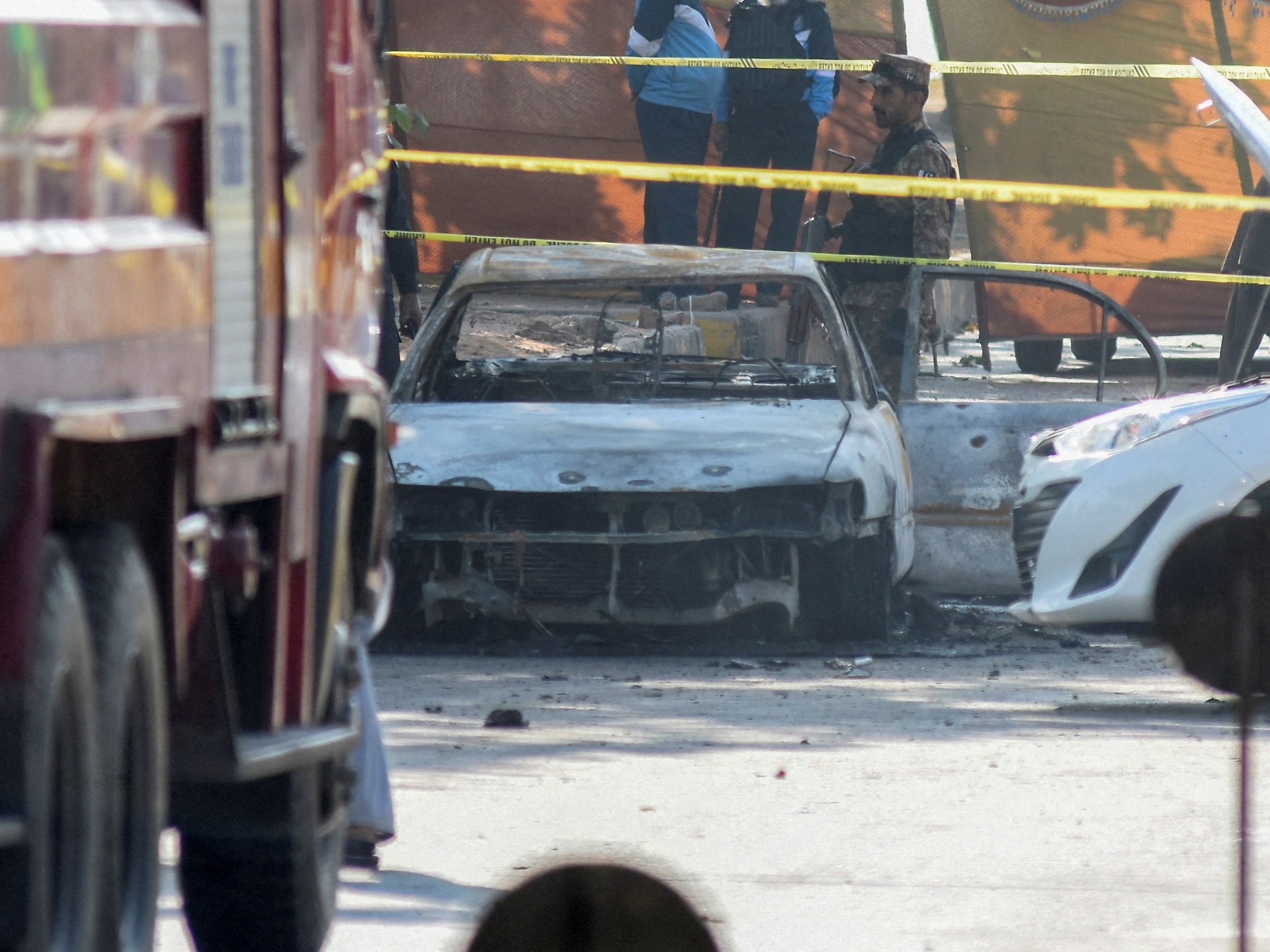All 20 personnel on board a Turkish C-130 military cargo aircraft that crashed in Georgia close to its border with Azerbaijan have died, the Turkish Defence Ministry says, as investigators examine the cause of the accident at the site.
The confirmation came on Wednesday, a day after the plane crashed after taking off from the nearby Azerbaijani city of Ganja.
Recommended Stories
list of 4 itemsend of list
“Our heroic comrades-in-arms were martyred,” Defence Minister Yasar Guler said in a social media post, alongside photographs of the deceased in their uniforms.
The ministry said a Turkish accident investigation, in coordination with Georgian authorities, had begun inspecting the wreckage at the crash site in the Sighnaghi municipality of Georgia’s Kakheti district early on Wednesday.
The crash, Turkiye’s deadliest military incident since 2020, happened about 5km (3.1 miles) from the Georgian-Azerbaijani border.
Georgia’s Sakaeronavigatsia air traffic control service said the aircraft disappeared from radar soon after entering the country’s airspace, sending no distress signal prior to the crash.
Dramatic footage published by Azerbaijani media appeared to show the aircraft sending a large cloud of black smoke into the sky after it crashed, leaving debris strewn across the ground.
Turkish President Recep Tayyip Erdogan said he was “deeply saddened” by the crash and expressed his condolences.
The leaders of Azerbaijan and Georgia, along with NATO Secretary-General Mark Rutte, have conveyed condolences over the crash, while the United States ambassador to Turkiye, Tom Barrack, also expressed his country’s solidarity.
US firm Lockheed Martin, the maker of the C-130 Hercules, also expressed its condolences and said it was committed to assisting the investigation in any way required.
